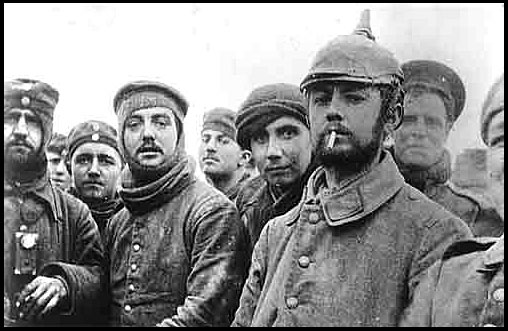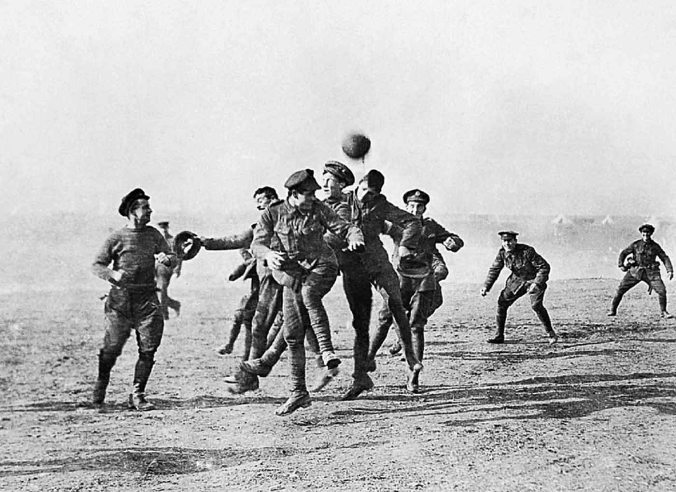One hundred and five years ago tonight, on the first Christmas Eve of World War One, a curious thing happened.
World War One, or the Great War, began in 1914. Like other long conflicts in history, many soldiers had gone to the battlefields enthusiastically, believing the war would be brief. When the first wave of soldiers departed for the front in July 1914, many imagined they would return home in a month or two, flushed with victory. By December 1914, they had been thoroughly disillusioned. So many soldiers had perished on the battlefield already, and both sides now understood the war would be a prolonged death grapple, one in which they fervently believed their own army must triumph.
The Catholic church had a new Pope that year. At the beginning of December, Benedict XV pleaded for a temporary truce for Christmas. His proposal was dismissed by Allied and German leaders.
The dreariness of the trenches on the Western Front— and the No Man’s Land that stretched between them— was all too familiar to the soldiers. The battlefields were dotted with ruined buildings and barbed wire. Continual rain made the ground muddy, adding to the nightmarish scene. The soldiers lived in a terrifying state of eternal readiness. Even in their sleep, they were on edge, never sure when machine gun fire or gas attacks might disrupt their fitful dreams. It was a miserable life.
But on Christmas Eve, the temperature dropped and the rain turned to snow. The crackling gun fire and shrill whistle of incoming mortar fire on the battlefield became sporadic, then it ceased altogether. The German emperor William II sent Christmas trees to the front in an effort to bolster the morale of the troops. And it worked. The German soldiers, longing for home and Christmases past, were delighted with the trees, and began to sing the carols that were familiar to them since childhood.
Across No Man’s Land, startled French, Scottish, and British soldiers heard a familiar melody. The German soldiers were singing “Still Nacht”. The Allied troops were missing their homes and loved ones too, and soon they were singing the familiar old songs.
The unofficial ceasefire lasted through the night. When the soldiers awakened the next morning, it was not to the sound of gunfire and shouting. Instead, they plainly heard the other army calling to them. To the great surprise of the German soldiers, they distinctly heard the Allied troops calling out: “Fröhliche Weihnachten!”
Calling back “Merry Christmas!” and “Joyeux noël!”, the German soldiers climbed out of their trenches unarmed, waving to the Allied soldiers to signal they meant no harm. Not a shot was fired at them. In a moment, the Allied troops followed suit, leaving the safety of their trenches. The opposing sides met and greeted each other in No Man’s Land. They had no common language but they managed to convey goodwill toward each other, shaking hands and offering the few luxuries they possessed as gifts to one another— cigarettes and baked treats mailed from far-away homes. In at least one instance, an impromptu game of soccer was played.
The festivities lasted throughout the day and into the evening, when candles were placed on the Christmas trees sent by William II. And along the Western Front, there was singing in French, German, and English.
Later in life, a German Lieutenant named Kurt Zehmisch remembered, “How marvelously wonderful, yet how strange it was. The English officers felt the same way about it. Thus Christmas, the celebration of Love, managed to bring mortal enemies together as friends for a time.”



I’ve always loved this story and you told it so vividly!
LikeLiked by 1 person
Thank you, Kristin!
LikeLike